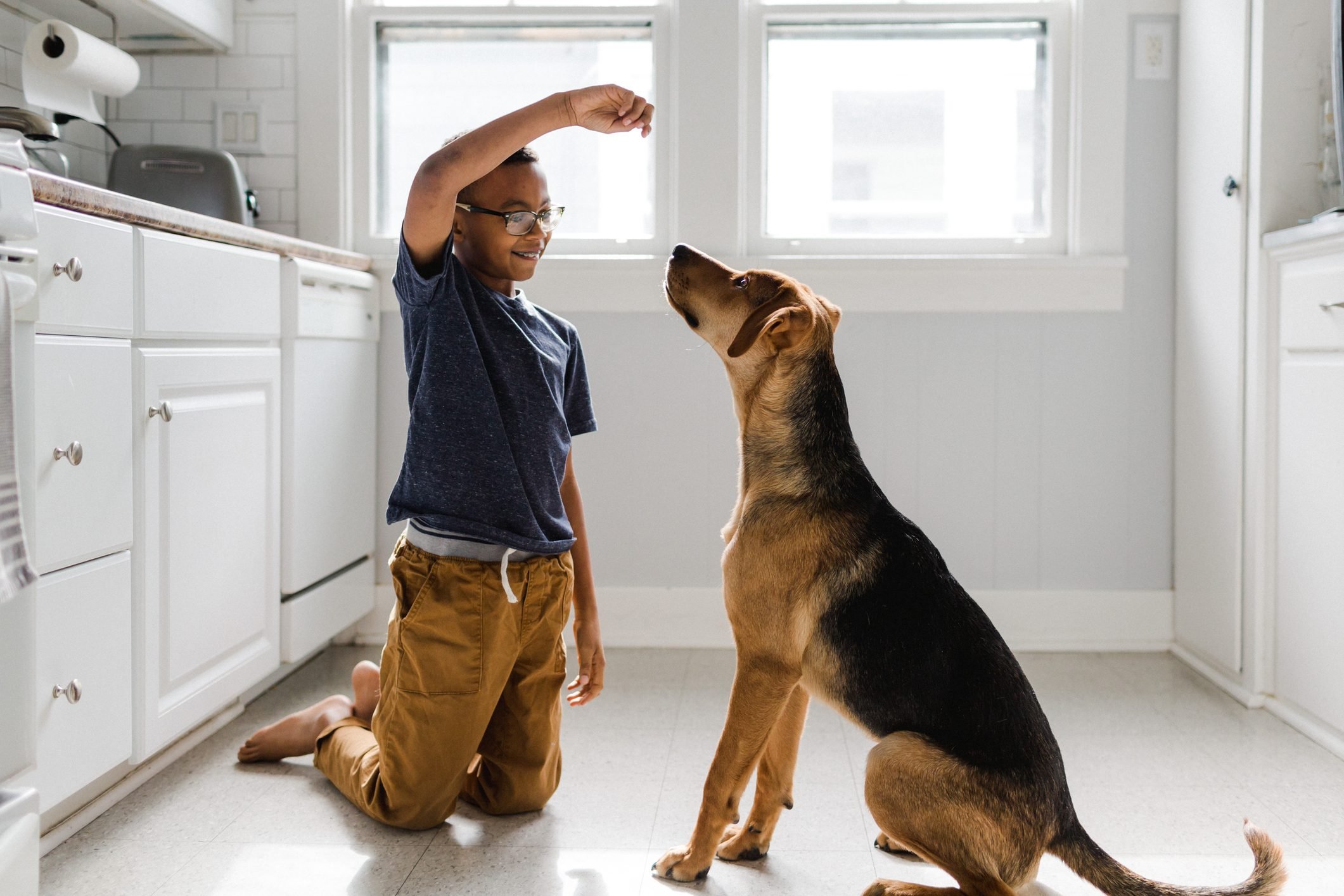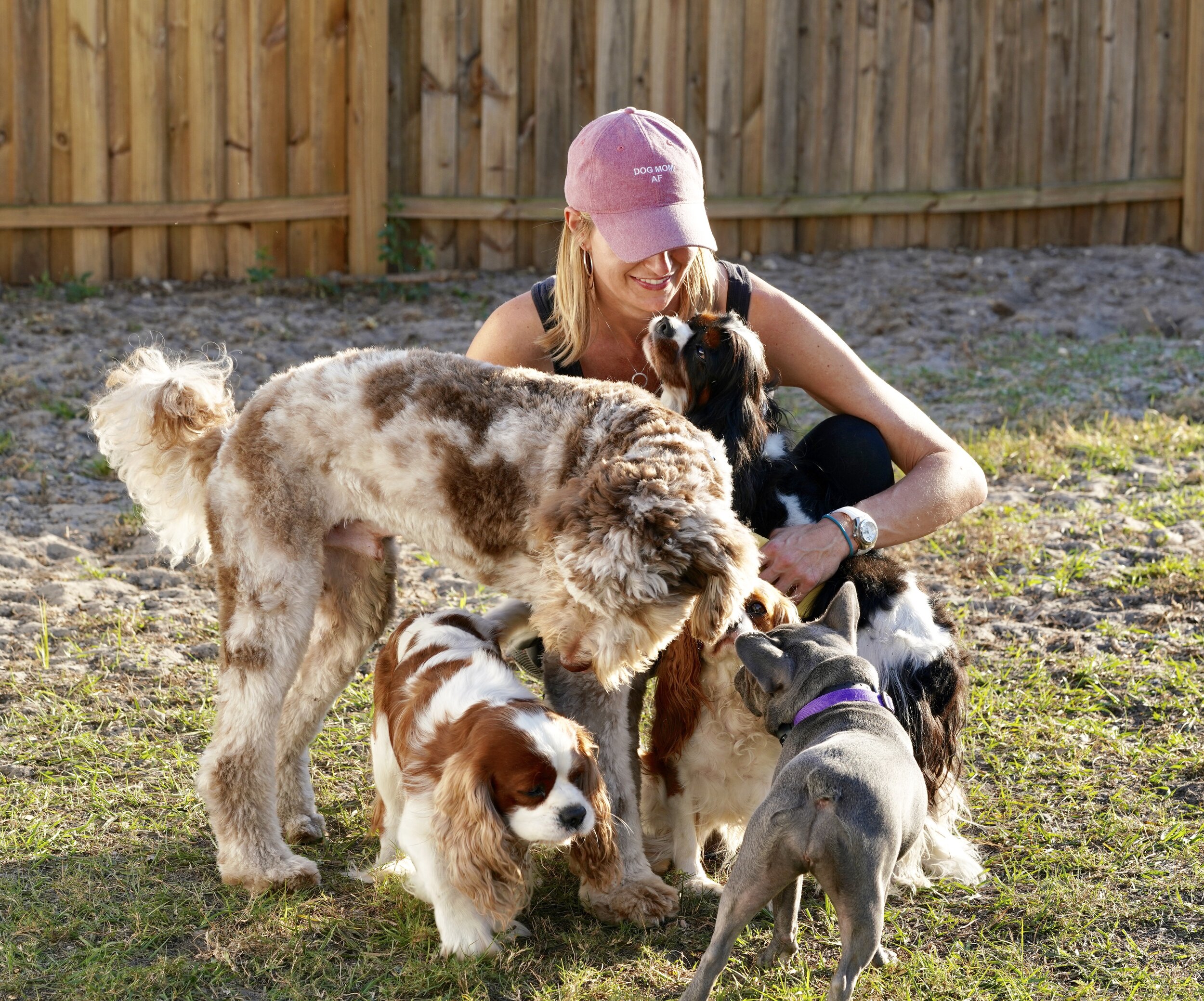Top Pet Dog Educating Techniques for Every Stage of Your Canine's Life
Effective pet training is essential at every phase of a pet's life, as each phase provides unique challenges and chances for growth - Dog Training For Dogs. From the foundational bonding methods needed for puppies to the customized techniques needed for senior dogs, recognizing these essential durations can substantially enhance the human-animal bond. It is necessary to recognize that training must evolve along with a dog's growth, guaranteeing that techniques remain reliable and relevant. What certain techniques can be used to attend to the varying requirements of your pet dog as it develops? The answer may shock you.
Puppy Educating Fundamentals
Puppy training basics prepared for a well-behaved adult pet and entail a number of crucial components that ought to not be forgotten. The first stage of training focuses on establishing a strong bond in between the pup and its proprietor, which is essential for reliable communication. Socialization is extremely important; exposing puppies to numerous environments, people, and various other pets helps them establish confidence and adaptability, decreasing the possibility of behavior issues later on in life.
Standard commands, such as sit, remain, and come, create the structure of obedience training. Making use of positive reinforcement techniques, such as treats and praise, urges wanted actions and cultivates a positive learning experience. Consistency in commands and training sessions is essential, as young puppies grow on regular and framework.
Additionally, house training is a necessary element of puppy training. Developing a regular timetable for washroom breaks and using marked locations can assist lessen accidents and promote excellent habits. On the whole, a well-shaped approach to puppy training, integrating socialization, home, and obedience training, sets the stage for a well-adjusted grown-up canine, guaranteeing an unified relationship between the pet and its owner.
Teen Behavior Administration
As puppies develop into teens, their habits can alter significantly, usually offering brand-new challenges for proprietors. This developmental stage, usually occurring in between 6 months and 2 years, is noted by heightened energy levels, curiosity, and an expanding feeling of freedom. Understanding these changes is vital for reliable habits management.
Adolescents may show defiant propensities, such as ignoring commands they formerly mastered or engaging in devastating actions. Consistency in training remains critical; strengthening learned actions with favorable reinforcement can aid neutralize these difficulties. Short, engaging training sessions are important to keep their rate of interest and emphasis.

Additionally, establishing an organized routine can considerably boost a teenage canine's complacency. Routine workout is crucial to transport their power positively, reducing the likelihood of unfavorable actions. By using these techniques, owners can efficiently browse the intricacies of teenage habits, cultivating a well-adjusted, pleased canine buddy.
Adult Pet Dog Obedience Strategies

Positive support remains a vital strategy; gratifying etiquette with deals with, appreciation, or playtime encourages conformity. Uniformity is crucial; the very same commands and rewards should be made use of by all household participants to stay clear of confusion.
Integrating training right into day-to-day routines can likewise be efficient. For circumstances, technique commands throughout walks or meal times, enabling training to mix perfectly into daily life. Taking part in organized tasks, like agility training courses or obedience courses, can better improve a pet dog's abilities read more while providing important socialization chances.
It is very important to recognize that grown-up dogs may additionally exhibit stubbornness or complacency. Adjusting training strategies to keep their passion, such as varying benefits or presenting new commands, can help endure inspiration. Overall, a recurring dedication to obedience training will certainly promote a mannerly and balanced grown-up pet.
Elderly Canine Adjustment Techniques
Identifying the special needs of senior pets is essential for ensuring their comfort and well-being. As dogs age, they might experience a decline in flexibility, vision, and cognitive feature, necessitating tailored adjustment methods.
First, think about modifying the living atmosphere. Make sure that the home is accessible and risk-free; remove obstacles and offer non-slip surfaces to stop drops. Furthermore, think about utilizing ramps or steps to aid them access their preferred areas.
Second of all, exercise should be changed to represent reduced endurance and joint health and wellness (Dog Training For Dogs). Engage in much shorter, a lot more regular strolls, and include gentle tasks like swimming, which can be beneficial for arthritic joints
In addition, psychological stimulation remains essential. Usage straightforward problem toys or take part in scent job to keep their minds sharp, while staying clear of overwhelming tasks that may discourage them.
Last but not least, regular vet examinations are necessary to keep track of health and wellness changes and adjust treatment regimens as necessary. By carrying out these adjustment approaches, you can enhance the top quality of life for your senior canine, ensuring they age beautifully and conveniently.
Lifelong Learning and Enrichment
While pet dogs of all ages gain from learning and mental excitement, lifelong enrichment is specifically essential for maintaining cognitive wellness and psychological wellness in both elderly and younger pets. Involving tasks not only enhance a dog's lifestyle but likewise strengthen the bond in between the dog and its proprietor.
Enrichment Source can take numerous kinds, consisting of interactive playthings, problem feeders, and scent work, which stimulate a canine's senses and encourage analytic. Regular training sessions, incorporating new commands or methods, maintains their minds sharp and advertises a feeling of success. Socialization with various other pets and people is equally vital, as it aids stop behavioral concerns and promotes versatility.
Furthermore, incorporating exercise into a pet's regimen is important for general health. Tasks like agility training, fetch, or long strolls supply both physical and psychological stimulation, ensuring dogs continue to be pleased and involved.
Lastly, think about differing the setting by presenting new places for walks or playdates. This change can reignite a canine's inquisitiveness and excitement for exploration. Lifelong knowing and enrichment not just contribute to a fulfilling life yet also advertise an unified relationship with your canine friend.
Final Thought
Effective canine training methods develop throughout a pet dog's life, attending to the special demands of each developing phase. Stressing routine psychological excitement, socializing, and physical workout promotes a balanced and fulfilling life for pet dogs.
Reliable pet training is essential at every stage of a pet's life, as each stage offers one-of-a-kind obstacles and opportunities for development.Puppy training basics lay the foundation for a mannerly grown-up pet dog and entail a number of crucial elements that ought to not be neglected. Overall, a well-rounded approach to puppy training, incorporating socializing, obedience, and home training, establishes the phase for a well-adjusted adult dog, making sure an unified partnership in between the pet dog and its owner.
Numerous dog proprietors may locate that grown-up canines, while generally even more stable in actions than their teen equivalents, still need consistent training to preserve obedience and good manners.Efficient pet training methods evolve throughout a pet's life, dealing with the one-of-a-kind needs of each developing stage.
Comments on “Dog Training For Dogs: A Step-by-Step Guide to Raising a Well-Behaved Animal”